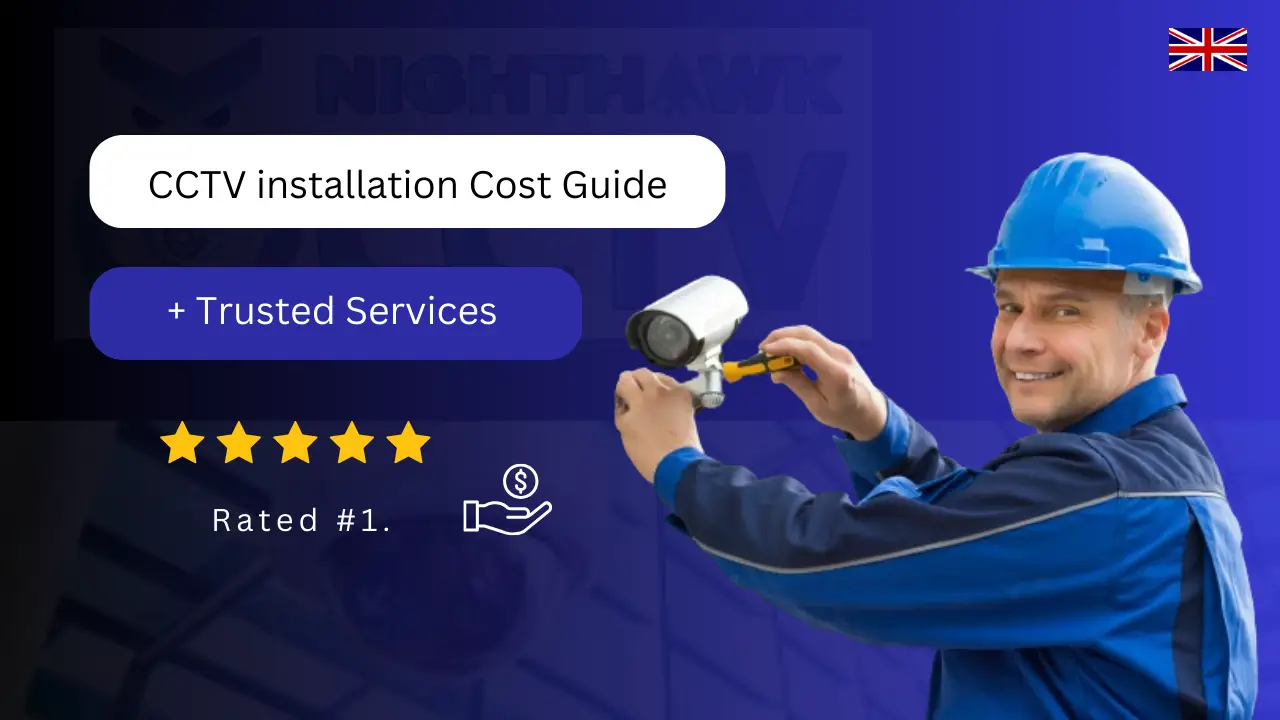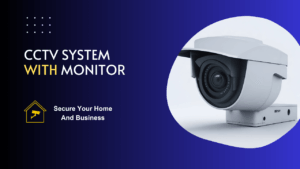When it comes to “How Much to Install CCTV,” a robust closed-circuit television (CCTV) system can prove invaluable for safeguarding your property. However, the cost of installing such a system can vary significantly. Factors such as the number of cameras required and the type of recording system employed play a pivotal role in determining the final price tag. Understanding these elements is crucial for budgeting effectively and ensuring you invest wisely in your security setup.
Assessing Your Security Requirements
Before delving into the specifics of CCTV installation costs, it’s essential to evaluate your security needs. Are you looking to monitor your residential property, a commercial establishment, or a vast industrial complex? The scale and complexity of the site will dictate the number of cameras required, which is a primary cost driver.
For instance, a small retail store may only necessitate a few cameras to cover the sales floor, while a sprawling warehouse might demand an extensive network of dome, bullet, and pan-tilt-zoom (PTZ) cameras to ensure comprehensive surveillance.
How Much to Install CCTV – Camera Types and Their Costs
The type of camera you choose for your CCTV system can significantly impact the overall cost. Each camera variant offers unique features and capabilities, catering to specific security requirements.
Dome Cameras
Dome cameras, with their discreet and unobtrusive design, are well-suited for both indoor and outdoor surveillance. These cameras typically range in price from £80 to £250, depending on the brand and features.
Bullet Cameras
Bullet cameras, named for their cylindrical shape, are designed for outdoor use and offer high-quality footage. Prices for these cameras can vary from £70 to £300, with higher-end models boasting advanced features like night vision and weatherproofing.
PTZ Cameras
PTZ cameras, known for their ability to pan, tilt, and zoom, are ideal for monitoring large areas such as parking lots or stadiums. However, their advanced capabilities come at a premium, with prices ranging from £150 to £1,000 or more.
Thermal Cameras
Thermal cameras, which detect heat signatures, are often employed in high-security settings. Due to their sophisticated technology, these cameras can be significantly more expensive than standard night vision models, with prices ranging from £90 to £400 or higher.
Fisheye Cameras
Fisheye cameras, equipped with specialized lenses, provide a 180-degree panoramic view, making them well-suited for monitoring large areas with fewer cameras. Depending on the brand and features, prices for these cameras can range from £80 to £250 or more.
Recording Systems: DVR vs. NVR
Once you’ve selected the appropriate cameras for your CCTV system, the next consideration is the recording system. Two main options are available: Digital Video Recorders (DVRs) and Network Video Recorders (NVRs).
Digital Video Recorders (DVRs)
DVRs are traditional CCTV recording systems that capture footage from wired cameras. They are known for their security and reliability. Depending on the number of cameras and storage capacity, DVRs cost from £150 to £900 or more.
Network Video Recorders (NVRs)
NVRs, on the other hand, are designed to work with IP cameras and transmit data over a network. While they offer greater flexibility and remote access capabilities, NVRs can be more expensive, with prices ranging from £200 to £1,000 or higher, depending on the system’s complexity.
Installation Costs and Considerations
In addition to the hardware costs, the installation process itself can significantly contribute to the overall CCTV system expenditure. Several factors, such as camera placement, wiring requirements, and the complexity of the installation, can influence the installation costs.
Camera Placement
The location of each camera plays a crucial role in determining the installation costs. Cameras installed at heights or in hard-to-reach areas may require specialized equipment or additional labor, thereby increasing the overall cost.
Wiring and Cabling
Depending on the type of CCTV system you choose, wiring and cabling can be a significant cost factor. Wired systems may require extensive cabling, which can be time-consuming and labor-intensive, particularly in larger installations.
Professional Installation
While it may be tempting to attempt a DIY CCTV installation to save costs, it’s generally recommended to enlist the services of a professional installer. Experienced professionals can ensure proper installation, minimize the risk of system outages, and provide warranties for parts and labor, ultimately saving you money in the long run.
Additional Costs to Consider
Depending on your specific requirements, several additional costs may need to be factored in beyond the core components of a CCTV system.
Monitoring Services
If you opt for a monitored CCTV system, where a third-party service provider constantly monitors your footage for potential threats or criminal activity, you’ll need to account for ongoing monthly or annual fees.
Maintenance and Repairs
To ensure the longevity and optimal performance of your CCTV system, regular maintenance and repairs may be necessary. Many professional installers offer maintenance contracts, which can be paid monthly or annually, to cover these costs.
Integration with Existing Systems
In some cases, you may need to integrate your CCTV system with existing security or building management systems. This integration process can add to the overall cost, as it may require specialized expertise and additional hardware or software components.
Cost Estimates: A Comprehensive Breakdown
To provide you with a better understanding of the potential costs involved, here’s a comprehensive breakdown of CCTV system expenses, based on various scenarios:
Residential CCTV System
For a basic residential CCTV system, consisting of four wired cameras and a DVR, you can expect to pay anywhere from £800 to £1,200, including installation costs.
Small Commercial CCTV System
A small commercial establishment, such as a retail store or office, may require a more robust system with eight to ten cameras, both indoor and outdoor. The cost for such a system, including installation, can range from £1,500 to £3,000 or more, depending on the camera types and additional features.
Large Commercial or Industrial CCTV System
For larger commercial or industrial facilities, the cost of a comprehensive CCTV system can escalate significantly. A system with 20 or more cameras, including PTZ, thermal, and advanced analytics capabilities, can cost anywhere from £10,000 to £50,000 or more, depending on the size and complexity of the installation.
It’s important to note that these cost estimates are approximate and can vary based on your specific requirements, location, and the chosen installer.
Tips for Cost-Effective CCTV Solutions
While investing in a CCTV system can be a significant expense, there are several strategies you can employ to maximize the value of your investment:
- Prioritize Your Security Needs: Conduct a thorough risk assessment to identify your most critical security requirements, and focus your CCTV system on addressing those areas first.
- Consider Scalability: Choose a CCTV system that allows for future expansion, enabling you to add additional cameras or features as your needs evolve without the need for a complete system overhaul.
- Explore Wireless Options: In some cases, wireless CCTV systems can be a more cost-effective solution, particularly in situations where wiring and cabling would be challenging or expensive.
- Negotiate with Installers: Obtain multiple quotes from reputable CCTV installers and negotiate for the best possible pricing, taking into account not only the initial installation costs but also ongoing maintenance and support.
- Leverage Technology Advancements: As CCTV technology continues to evolve, newer and more cost-effective solutions may become available. Stay informed about the latest developments and consider upgrading or replacing outdated systems to take advantage of improved features and lower costs.
By carefully evaluating your security needs, exploring various options, and implementing cost-saving strategies, you can ensure that your CCTV system investment provides optimal value while effectively safeguarding your property.
Conclusion
Determining the cost of a CCTV system is a multifaceted process that requires careful consideration of various factors, including the number and type of cameras, recording system, installation requirements, and additional services. By understanding these elements and their impact on the overall cost, you can make an informed decision that aligns with your security needs and budget.
Remember, while the initial investment in a CCTV system may seem substantial, the peace of mind and enhanced security it provides can be invaluable, particularly for businesses and homeowners seeking to protect their assets and loved ones. By partnering with reputable CCTV installers and leveraging cost-effective strategies, you can ensure that your investment yields long-term benefits and a truly priceless sense of security.




